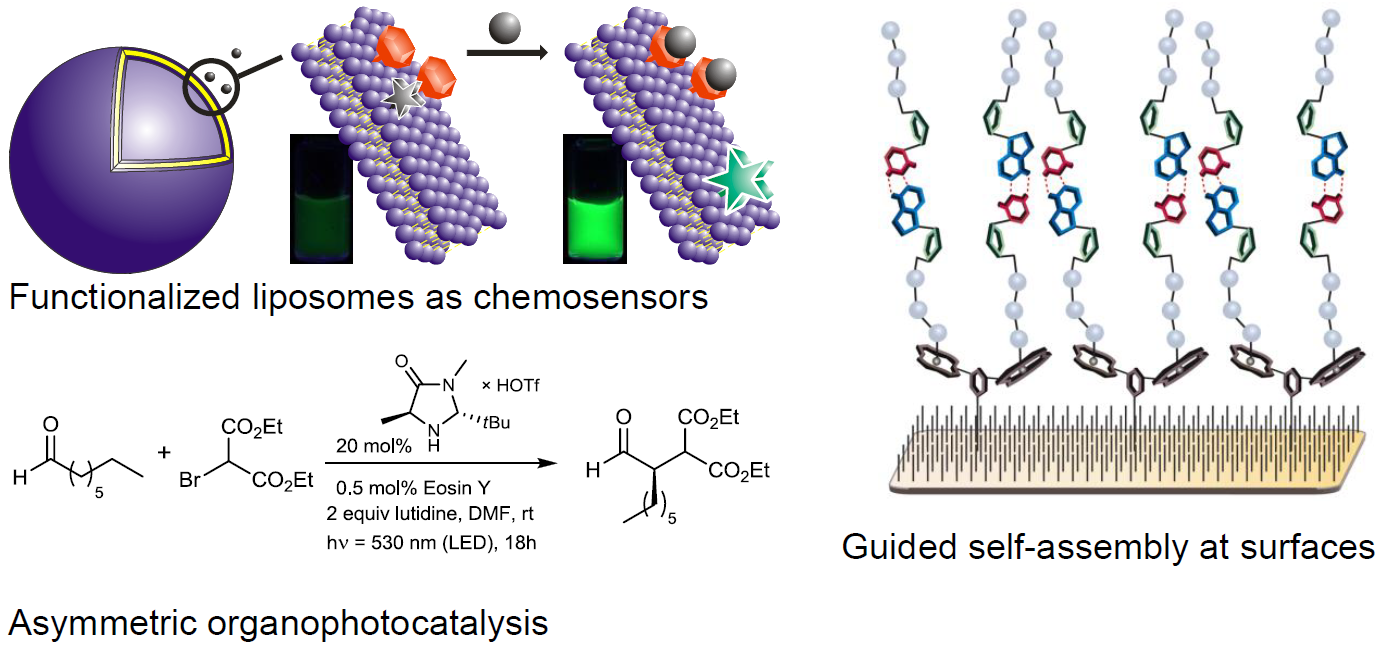Speaker
Prof. Burkhard König (Universität Regensburg, Germany)
Topic
Synthetic Receptors for Selective Molecular Recognition and Catalysis
Series
Abstract
Gaining control over intermolecular interactions is essential for the development of selective chemosensors and catalysts. We use reversible coordinative bonds, hydrophobic interactions and hydrogen bonds to assemble chemosensors and sensory nanoparticles for the specific interaction with peptides, protein surfaces and nucleotides. The combination of a binding site with a reporter dye allows direct monitoring of recognition events, but conjugates of substrate binding sites and chromophores are likewise useful as chemical photocatalysts mediating selective reactions under visible light irradiation. The lecture will review some principles using coordinative bonds in molecular recognition and discuss recent results from our laboratory in protein recognition, self-assembly and chemical photocatalysis.

References
- Jose, D. A.; König, B. Polydiacetylene Vesicles Functionalized with N-Heterocyclic Ligands for Metal Cation Binding. Org. Biomol. Chem. 2010, 655-662.




